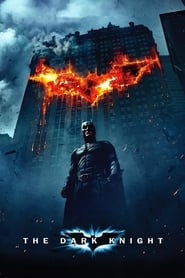[The] catch-22: Christopher Nolan’s The Dark Knight demands, in a mean, raspy voice, to be taken more seriously than your average comic book movie. But when one endeavors to do just that—to analyze its loudly explicated themes of duality and ethical impasse; to parse the implications of having its villain be referred to and self-identify as a “terrorist;” to consider the use of invasive surveillance technology as a post–Patriot Act plot point—one is reprimanded for bullying a defenseless Pop object. Hey, guys, why so serious?[…]
Perhaps fearful of burdening their film with too much exposition (an oft-cited flaw of Batman Begins), the Nolan's take a shortcut, presenting a prefab psychopath whose lack of a conventional criminal agenda allows them—and acquiescent critics—to make bold allusions to a terrorist ethos.
— Adam Nayman (Reverse Shot)
A handful of Marvel Comics adaptations had already been released or were in production when The Dark Knight hit theaters, but Nolan’s picture is the one that caused the industry- and culture-spanning paradigm shift toward superhero stories, and the increasingly strident demands that those stories be accepted as high art, or at least the highest art that adults should be expected to parse. In addition to a genuinely spellbinding Heath Ledger performance as the Joker and a handful of practical stunts, the movie offers a trump card against complaints that Hollywood is dominated by liberalism. The Dark Knight’s third act is essentially an argument for both the basis and the methods of the war on terror, an extremely literal allegory about the necessity of illegal surveillance and extrajudicial torture—and the trust we should have in our leaders to deploy each with restraint. It is a definitive neocon text released just months before Barack Obama’s election.
— Paul Thompson (LA Review of Books)
A vulgar Marxist might have noted that as Batman is the alter-ego of the richest man in Gotham City, his "law" was the protection of capital. Smeared lipstick notwithstanding, one of the scariest things about the Joker is that he has no respect for money.
— J. Hoberman: Film After Film (Or, What Became of 21st Century Cinema?) (2012)
Synopsis: Batman raises the stakes in his war on crime. With the help of Lt. Jim Gordon and District Attorney Harvey Dent, Batman sets out to dismantle the remaining criminal organizations that plague the streets. The partnership proves to be effective, but they soon find themselves prey to a reign of chaos unleashed by a rising criminal mastermind known to the terrified citizens of Gotham as the Joker.

